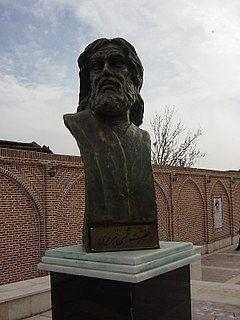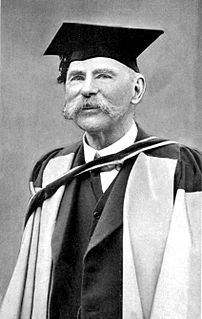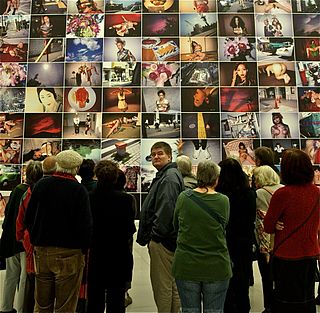A Quote by Charles D'Ambrosio
What the nostalgic past and the imaginary future seem to share in common is a form of idealism, perhaps a dream of wholeness. Our future is just as goopy with sentiment as our past. To me, they're the same, both very tempting, and I don't believe in either, although the idealism is probably important.
Related Quotes
The Past is dead, and has no resurrection; but the Future is endowed with such a life, that it lives to us even in anticipation. The Past is, in many things, the foe of mankind; the Future is, in all things, our friend. In the Past is no hope; The Future is both hope and fruition. The Past is the text-book of tyrants; the Future is the Bible of the Free. Those who are solely governed by the Past stand like Lot's wife, crystallized in the act of looking backward, and forever incapable of looking before.
We crave a world of either/or, but the Dream says, Both/and. We build a wall between our social persona and our inner selves; the Dream bids us, Demolish it. We wish to believe we're separate from one another, but the Dream insists, We are in this together. We are pleased to believe Time is a one-way river from past to present to future, yet the Dream reveals, All three times flow into one. We wish to seek pure virtue and avoid all stain, but the Dream avers, The dark and the light are braided and bound.
We are all affected by five things. But the most important thing that affects us is our dreams--our ability to see the future. But here's why we don't reach into the future. We're trapped either by regret of the past or the routine of the present. So make sure that the greatest pull on you is the pull of the future.
Past, n. That part of Eternity with some small fraction of which we have a slight and regrettable acquaintance. A moving line called the Present parts it from an imaginary period known as the Future. These two grand divisions of Eternity, of which the one is continually effacing the other, are entirely unlike. The one is dark with sorrow and disappointment, the other bright with prosperity and joy.... Yet the Past is the Future of yesterday, the Future is the Past of to-morrow. They are one-the knowledge and the dream.
Our nostalgic dreams of perfection thrive just as dangerously in the other direction too, in the imaginary future, that bold and tantalizing future where the troubles of today will be cured by a tomorrow, and all our losses will be recouped, our problems solved, our lives restored, our people made whole again, etc.
If history is to be creative, to anticipate a possible future without denying the past, it should, I believe, emphasize new possibilities by disclosing those hidden episodes of the past when, even if in brief flashes, people showed their ability to resist, to join together, occasionally to win. I am supposing, or perhaps only hoping, that our future may be found in the past's fugitive movements of compassion rather than in its solid centuries of warfare.
It seems to me that the dedication of a library is an act of faith. To bring together the resources of the past and to house them in buildings where they will be preserved for the use of men and women in the future, a nation must believe in three things. It must believe in the past. it must believe in the future. It must, above all, believe in the capacity of its own people so to learn from the past that they can gain in judgment in creating their own future.
Youth is a period of idealism. The Communists attract young people by appealing directly to that idealism. Too often, others have failed either to appeal to it or to use it and they are the losers as a consequence. We have no cause to complain if, having neglected the idealism of youth, we see others come along, take it, and harness it to their cause - and against our own.
Photographs are diary entries That's all they can be. Photographs are just documentations of a day's event. At the same time, they drag the past into the present and also continue into the future. A day's occurrence evokes both the past and the future. That's why I want to clearly date my pictures. It's actually frustrating, that's why I now photograph the future
We believe that the possibility of the future far exceeds the accomplishment of the past. We review the past with the common sense, but we anticipate the future with transcendental senses. In our sanest moments we find ourselves naturally expecting or prepared for far greater changes than any which we have experienced within the period of distinct memory, only to be paralleled by experiences which are forgotten.




































